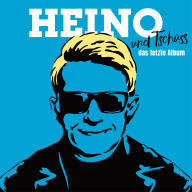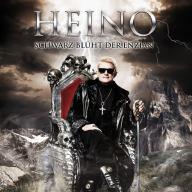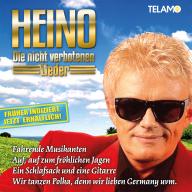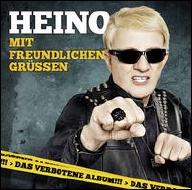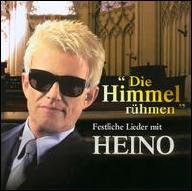By the 1980s, Heino's popularity began to spread outside the country's borders, throughout Europe and across the Atlantic. He is not meant as a joke, yet sometimes references are made to him as such, despite the fact that he is one of his country's most popular singers. In Heino's homeland they call him an "uberstar." His record sales there have surpassed the Beatles, and to mark the occasion of the singer's 60th birthday, German prime-time television hosted a 90-minute special and titled it Der Goldene Heino (The Golden Heino). Cults have sprung up, one of which (the Cosmic Order of Heino) believes that otherworldly beings inserted a chip in the singer's brain, a device that is somehow tied to humanity's well-being. One of his album covers sports a shot of the singer in what could be described as '60s-style garb: peg pants and turtlenecks.
Heino's real name is Heinz Georg Kramm. His father passed away during the '40s. He studied the accordion in his youth while apprenticing to become a baker, practicing his skills in Dusseldorf's finer restaurants. He made his first professional appearance in 1955 and ditched baking to become a full-time professional singer in 1960. In 1965, Ralf Bendix discovered him and Heino soon signed a recording deal. His first single topped sales of 100,000 copies. His next effort, titled "Wenn die Bunten Fahnen Weh'n," went gold. With many decades of entertaining to his credit, Heino continues to perform in concert and on tour. His wife, Hannelore, is Princess of Auersperg, and in 1984 she collaborated with him on Die Liebe Ist das Gold des Lebens.
In 2013, after decades away from the studio, Heino made an improbable comeback with Mit Freundlichen Grüßen, an album of cover songs by popular German hard rock, punk, and hip-hop acts that went straight to number one and vaulted the singer back into the spotlight. ~ Linda Seida, Rovi


